Don’t lose out on early-bird registration rate for Annual Conference
 County officials have just five days left to take advantage of the early-bird registration rate of $395 for the upcoming 2022 Michigan Counties Annual Conference, Sept. 18-21 in Port Huron.
County officials have just five days left to take advantage of the early-bird registration rate of $395 for the upcoming 2022 Michigan Counties Annual Conference, Sept. 18-21 in Port Huron.
The conference will be headquartered at St. Clair County’s Blue Water Convention Center in Port Huron at the southern end of Lake Huron.
The early-bird rate for members and spouses is set to expire Aug. 10.
Expiring even sooner is the special conference room rate of $129 per night at the Comfort Inn in Port Huron. (A free shuttle service will run between the Comfort Inn and the conference center and there is plenty of free parking at the conference center as well.)
The Annual Conference will feature:
- Four plenary sessions featuring key issues now before Michigan and a MAC Legislative Update (Speakers will be announced soon.)
- 12 breakout sessions for MAC members and 6 workshops for MCMCFC members (Speakers will be announced soon.)
- A Welcome Reception and Strolling Dinner on the evening of Sunday, Sept. 18.
- A reception sponsored by MAC’s CoPro+ subsidiary on Monday evening, before attendees are shuttled into downtown Port Huron for a “dinner on your own” night.
- A lavish President’s Banquet on the night of Tuesday, Sept. 20.
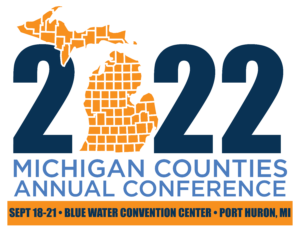 Members of MCMCFC will enjoy specialized breakouts designed for its members to earn Nursing and NAB Continuing Education credits. And MAC members attending the conference will receive credits in MAC’s County Commissioner Academy.
Members of MCMCFC will enjoy specialized breakouts designed for its members to earn Nursing and NAB Continuing Education credits. And MAC members attending the conference will receive credits in MAC’s County Commissioner Academy.
The early-bird conference fee of $395 provides members full access to all conference activities. (The spouse fee also provides access to any conference event, including the President’s Banquet on the evening of Sept 20.) This fee includes two dinners, two receptions, two breakfasts and two lunches. On Aug. 11, the member fee will increase to $425, while the spouse rate will rise to $175.
NOTE: The member rate is open to all county commissioners, administrators, countywide elected officials and county employees of MAC member counties, plus employees and board members of MCMCFC facilities.
Hotel details
Rooms at the Comfort Inn are $129 per night. The Comfort Inn is located at 1720 Hancock St., Port Huron, MI 48060. To book your room reservations, call 810-987-5999. Group Name: MAC.
As of Thursday, the Comfort Inn had 34 rooms still available in the conference block with the special pricing of $129 per night.
Please direct any conference registration questions or issues to conference@micounties.org.
Vast majority of county millage requests approved by voters
 Voters in the Aug. 2 primary election gave broad approval to county millage requests, both renewals and increases, an analysis by the Gongwer News Service found.
Voters in the Aug. 2 primary election gave broad approval to county millage requests, both renewals and increases, an analysis by the Gongwer News Service found.
In fact, only seven out of the more than 100 such requests were denied by the approximately 2.1 million voters who participated statewide in the primary.
Voters in Benzie County approved six different millage questions, while voters in Midland and Sanilac each approved five.
For summary details on all of the county requests from Gongwer, click here.
Policy Summit presentations, videos now available
 Presentations and videos from MAC’s 2022 Policy Summit are now available to members with 24/7 access.
Presentations and videos from MAC’s 2022 Policy Summit are now available to members with 24/7 access.
The Policy Summit, which replaced MAC’s Regional Summits, featured four major policy briefings on:
- Challenges in workforce housing
- Michigan’s trails system and its benefits
- Michigan’s political dynamics in 2022
- Ideas to maximize infrastructure dollars
For links to presentations and videos, visit the Policy Summit page on the MAC website.
Summit to brief community leaders on broadband developments
 Join community leaders, federal representatives and staff from the Michigan High-Speed Internet Office on Aug. 18 at this free event to learn about critical programs to expand broadband infrastructure and digital equity throughout the state. During this day-long summit, discussions will include local government and community needs, legislative and program updates, working with industry, data collection and mapping, and supply chain and talent needs, among others.
Join community leaders, federal representatives and staff from the Michigan High-Speed Internet Office on Aug. 18 at this free event to learn about critical programs to expand broadband infrastructure and digital equity throughout the state. During this day-long summit, discussions will include local government and community needs, legislative and program updates, working with industry, data collection and mapping, and supply chain and talent needs, among others.
You may attend in-person or via a digital option for the event, which will run from 8:30 a.m. to 4 p.m.
Connecting all Michiganders to affordable, reliable high-speed internet is critical to our economic stability and this event will provide an opportunity for us to discuss ways we can work together to efficiently and effectively utilize broadband funds from the Bipartisan Infrastructure Law and other federal broadband dollars to the maximum extent.
Broadband policy and how counties can connect their residents also will be the focus of a Plenary Session at the 2022 Michigan Counties Annual Conference, Sept. 18-21. Registration remains open. Click here to register.
MAC includes county settlement projections on new opioids page

A new digital resource for county leaders now includes estimated county-by-county payments coming from the national opioid settlement.
In figures provided by the State Attorney General’s Office, an estimated $78 million will be assigned to Michigan counties. To see your county’s estimate, first visit MAC’s Opioid Settlement Resource Center.
Among the features of the new page are:
- An overview of the opioid crisis and the national settlement
- Numerous general resources on how counties could deploy their funds to maximize public health
- Links to Michigan Department of Health and Human Services webinar recordings
MAC will continue to add news, links and resources to the center as the distribution of the settlement advances.
 Staff picks
Staff picks
- As species recover, some threaten others in more dire shape (Associated Press)
- How (Leelanau) county maps a plan for better broadband (Connected Nation)
- Ingham County opens up juvenile justice grant application (Fox 47 News)
- Public comment period open on Five-year Transportation Program (Michigan Department of Transportation)

 Michigan counties would receive a higher reimbursement rate on some juvenile services under a proposal unanimously backed by members of a state Task Force on Juvenile Justice Reform this month.
Michigan counties would receive a higher reimbursement rate on some juvenile services under a proposal unanimously backed by members of a state Task Force on Juvenile Justice Reform this month.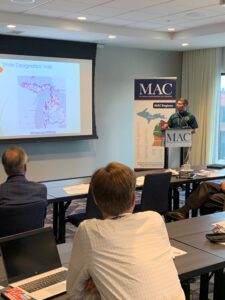
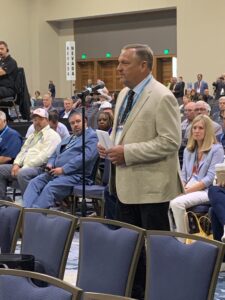
 County leaders should be signing up now for the next session in the “Fiscally Ready Communities” webinar series set for Aug. 4 from 10:30 a.m. to noon.
County leaders should be signing up now for the next session in the “Fiscally Ready Communities” webinar series set for Aug. 4 from 10:30 a.m. to noon.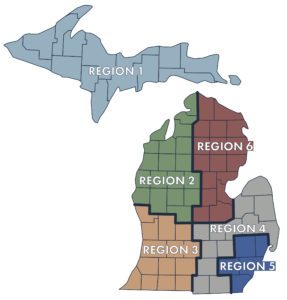 At the 2022 Michigan Counties Annual Conference (Sept. 18-21 in Port Huron), MAC members will vote on six seats on the MAC Board of Directors. Commissioners wishing to serve on the Board, whether incumbents or new candidates, have until Aug. 18 to file official notice of their intent to run. (
At the 2022 Michigan Counties Annual Conference (Sept. 18-21 in Port Huron), MAC members will vote on six seats on the MAC Board of Directors. Commissioners wishing to serve on the Board, whether incumbents or new candidates, have until Aug. 18 to file official notice of their intent to run. ( The
The  The U.S. Treasury has released
The U.S. Treasury has released  County leaders are encouraged to register for the 17th session of a series of webinars co-sponsored by MAC, the Michigan Department of Treasury and other local government groups.
County leaders are encouraged to register for the 17th session of a series of webinars co-sponsored by MAC, the Michigan Department of Treasury and other local government groups. The
The  A bill to allow remote participation during an open meeting, with a quorum present, was introduced last week by Rep. Julie Calley (R-Ionia).
A bill to allow remote participation during an open meeting, with a quorum present, was introduced last week by Rep. Julie Calley (R-Ionia). After years of workgroups, Sen. Curt VanderWall (R-Mason) and Sen. Kevin Daley (R-Lapeer) have introduced legislation to create a process for establishing solar energy districts, allowing for a personal property tax exemption for solar energy equipment and replacing it with a payment in lieu of taxes (PILT) system.
After years of workgroups, Sen. Curt VanderWall (R-Mason) and Sen. Kevin Daley (R-Lapeer) have introduced legislation to create a process for establishing solar energy districts, allowing for a personal property tax exemption for solar energy equipment and replacing it with a payment in lieu of taxes (PILT) system.  A pilot project involving MAC, the University of Michigan and others is exploring whether a new fiscal reporting mechanism for governmental entities can help create transparency — and prevent future financial crises.
A pilot project involving MAC, the University of Michigan and others is exploring whether a new fiscal reporting mechanism for governmental entities can help create transparency — and prevent future financial crises.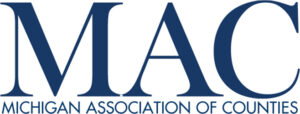 Legislative Update takes brief mid-summer hiatus
Legislative Update takes brief mid-summer hiatus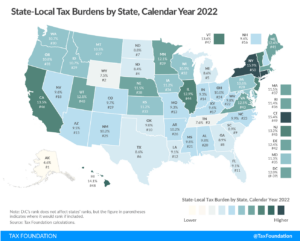 Staff picks
Staff picks In the wee hours on Friday, the Legislature finished the FY 2023 budget, which is set to begin on Oct. 1 of this year. Below are the major highlights, including a 6 percent (5% in the base and 1% one-time) increase in County Revenue Sharing. In addition, they passed a supplemental budget for FY22, included in which are items of importance to counties.
In the wee hours on Friday, the Legislature finished the FY 2023 budget, which is set to begin on Oct. 1 of this year. Below are the major highlights, including a 6 percent (5% in the base and 1% one-time) increase in County Revenue Sharing. In addition, they passed a supplemental budget for FY22, included in which are items of importance to counties.  A second water infrastructure bill package using federal infrastructure dollars was signed by Gov. Gretchen Whitmer this week.
A second water infrastructure bill package using federal infrastructure dollars was signed by Gov. Gretchen Whitmer this week. Several pieces of legislation impacting local government were introduced this week during the Legislature’s marathon work days this week.
Several pieces of legislation impacting local government were introduced this week during the Legislature’s marathon work days this week. County leaders are cordially invited to attend, in person or via Zoom, the 2022 MAC Policy Summit on July 27 in downtown Lansing.
County leaders are cordially invited to attend, in person or via Zoom, the 2022 MAC Policy Summit on July 27 in downtown Lansing. The U.S. Department of Transportation is now accepting applications for the first-of-its-kind Reconnecting Communities pilot program. The $1 billion program will help reconnect communities that were previously cut off from economic opportunities by transportation infrastructure.
The U.S. Department of Transportation is now accepting applications for the first-of-its-kind Reconnecting Communities pilot program. The $1 billion program will help reconnect communities that were previously cut off from economic opportunities by transportation infrastructure.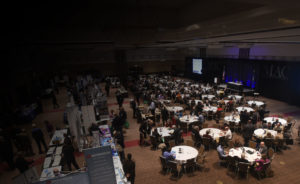 MAC’s Annual Business Meeting will be held on Tuesday, Sept. 20 at 2 p.m. in the Blue Water Convention Center during the 2022 Michigan Counties Annual Conference.
MAC’s Annual Business Meeting will be held on Tuesday, Sept. 20 at 2 p.m. in the Blue Water Convention Center during the 2022 Michigan Counties Annual Conference. MAC’s Lansing offices will be closed on Monday, July 4 to observe the Independence Day holiday.
MAC’s Lansing offices will be closed on Monday, July 4 to observe the Independence Day holiday.





